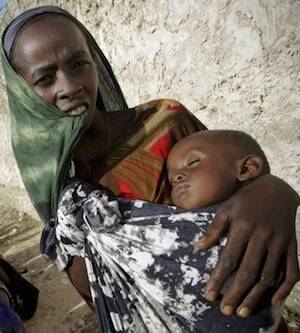In just over two decades Niger has cut its rate of infant mortality in half, highlighting the benefits of universal free health care for children and pregnant women. Since the mid-1990s, the Niger government has been committed to universal access to basic health care for women and children, focusing on measures to reduce deaths from malaria, diarrhea and measles. That effort has paid off. According to a study in the British medical journal The Lancet, Niger improved from 226 deaths per 1,000 live births in 1998 to 128 deaths in 2009. In addition, after receiving a better diet with vitamin A supplements, regular treatment for illnesses and vaccinations, the number of children aged 24 to 35 months with rickets and growth disorders was also reduced. Much work remains, however. According to Unicef, in 2012 Niger recorded the highest number of malnourished children in the Sahel region. More than 330,000 children under 5 years of age are at risk of malnutrition. In the region, heavy drought and rising food prices have left more than 18 million people suffering from hunger.
Infant Mortality Down?
Show Comments (
)
Comments are automatically closed two weeks after an article's initial publication. See our comments policy for more.
The latest from america
“Pope Francis is the pope of the people,” Rosa de los Ríos told America in Spanish before the funeral Mass. “He is very close to the people.... That’s why he was so loved. People felt he was very close to them.”
Donald Trump and Volodymyr Zelenskyy met inside St. Peter’s Basilica ahead of the funeral for Pope Francis on the morning of April 26.
Cardinal Giovanni Battista Re’s homily for the funeral of Pope Francis.
The day before he died, Pope Francis made one final circuit through St. Peter’s Square in his popemobile. “That’s my last image of him alive,” Gerry O’Connell remembered. “He drove among the people.”








